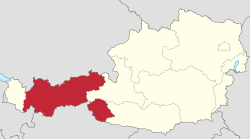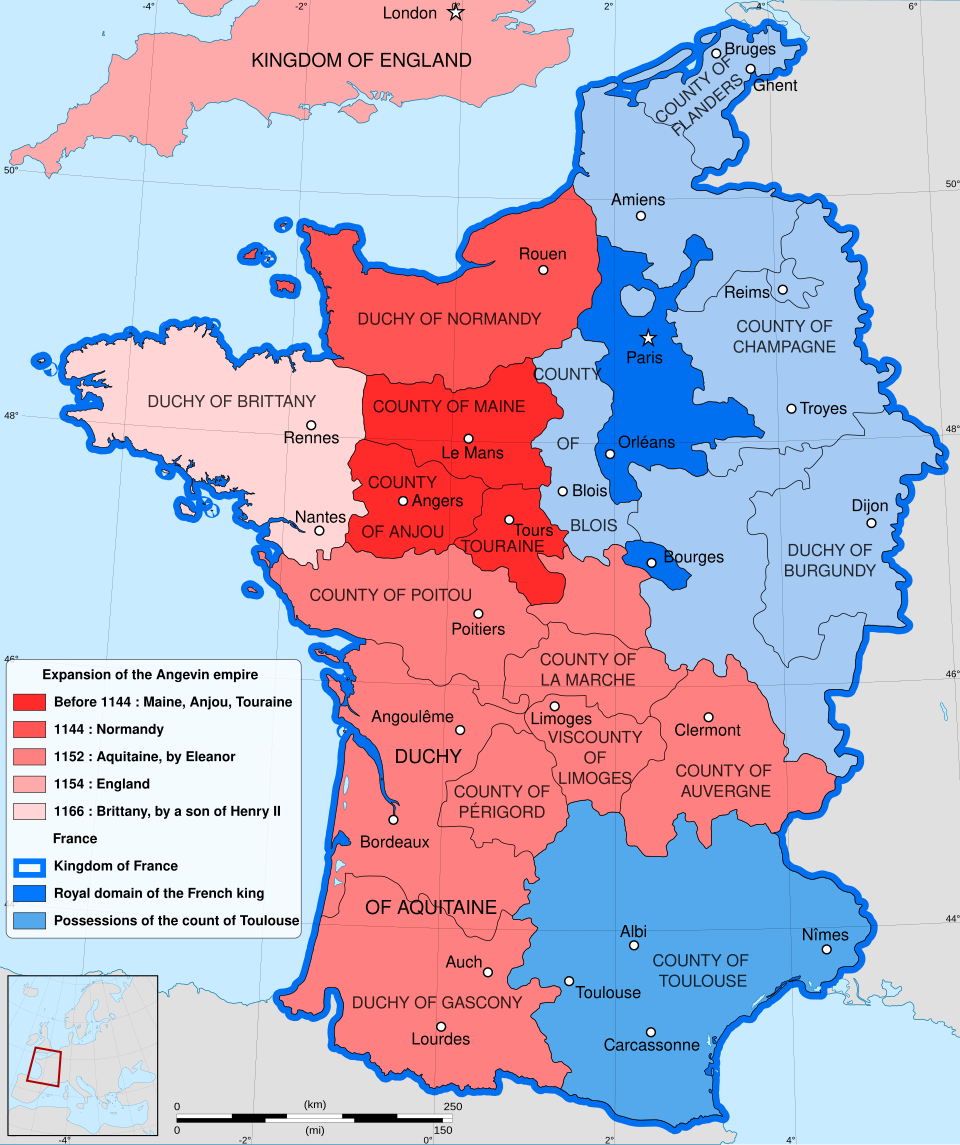February 20, 1810 - Execution of Austrian Patriot Andreas Hofer
- James Houser
- Feb 20, 2020
- 4 min read
Updated: Jun 1, 2021
February 20, 1810. A short, bearded man stands before a firing squad. He refuses the blindfold offered him, and refuses to kneel. Approaching the corporal of the squad, he presses some money into his hands and implores him to "Shoot straight." With his back against a stone wall, he himself gives the order to fire. One volley rings out. Andreas Hofer, the Tyrolean resistance leader and scourge of the French, is dead.
You're already asking "What's a Tyrol?" Take a look at the map of Austria below. See that dogleg bit sticking out to the west? That's the Tyrol. Tyrol, Austria's Alpine region, is a sparsely populated mountain country known for its apple strudel, being the birthplace of mountaineering and as the origin of the Krampus legend. As an agricultural and conservative region, far from major cities, it is one of the most "Austrian" parts of Austria.
In 1805, Napoleon had beaten Austria so hard that he basically had them over a barrel and could do anything he wanted with them. That included tearing off shreds of territory to parcel out to friends and neighbors. One of those shreds Napoleon seized was Tyrol. While it's possible that Napoleon just wanted some of that apple strudel, the more likely reason is that Tyrol includes several key mountain passes, such as the Saint Gotthard Pass, that cross the Alps between Germany and Italy. These were crucial pieces of terrain and needed to be secured in the event of a future war.
To save him the time and energy of occupying the place himself, Napoleon awarded the Tyrol to his ally the King of Bavaria. Bavaria was quite happy to exploit this plump, rich territory for all it was worth - it had bad blood with the Alpine peoples. They dispatched a minister, Maximilian von Montgelas, to oversee the shiny new toy Napoleon had tossed at their feet. Montgelas heavily taxed the region and began to conscript Tyroleans into the Bavarian Army.
Enter Andreas Hofer. Formerly a sharpshooter and militia officer in the Austrian Army during its wars against the French, Hofer was a Tyrolean innkeeper who sometimes herded cattle when he was down on his luck. Nevertheless, he was a well-respected local leader, and became a focal point to Tyrolean resistance against their new Bavarian oppressors. In early 1809, the Tyroleans heard through the rumor mill that Austria was preparing to confront Napoleon again. Hofer was part of a delegation secretly sent to meet with the Emperor of Austria, where they promised to revolt when the war began if he would support them. The Emperor gave his word.

The same day - April 9, 1809 - that Austrian armies invaded Bavaria, looking for a confrontation with the French, Hofer's rebels rose up in Tyrol. Usually armed with little more than hunting rifles and farm implements, the Tyrolean peasants overran Bavarian garrisons and ambushed a French infantry column. They quickly seized most of the outposts, and two days later seized the Tyrolean capital of Innsbruck. When French and Bavarians launched a counterattack, Hofer defeated them in battle, driving them from Tyrol.
Unfortunately for the victorious guerrillas, events elsewhere didn't go so well. The Austrian armies were outmaneuvered and beaten masterfully by Napoleon, and Austrian support for the rebellion banished. French and Bavarian troops marched in, recaptured Innsbruck, and drove Hofer and his boys into the mountains. As soon as the French left to reinforce Napoleon, though, Hofer swept down again.
Twice more, Hofer defeated the Bavarians and French in battle. He coaxed out a promise from the Austrian Emperor that the Emperor wouldn't sign any treaty that gave the Tyrol back - but a few months later, the Emperor did just that, and the French converged on the region. Hofer held out for months with his ragged band of mountain men, striking from the forests and blocking the passes, but eventually he had no choice but to surrender, accept parole, lay down his arms, and go home.

But there was one sad epilogue. Word reached Hofer that, somehow, the Austrians were at war again! Disregarding previous oaths of disarmament he had made, Andreas Hofer tried to rally up a new resistance movement against the French. Alas, the rumors had been false; Austria was not at war, and this time there would be no amnesty for the Tyrolean rebel.
Hofer faced court-martial in Italy at the hands of the French. Even though he was assuredly guilty of violating parole, the court felt that he deserved some clemency. Apparently, even Napoleon thought so. However, the Emperor's command to the court that they should "give him a fair trial and sentence him accordingly" ended up translating to "give him a fair trial and shoot him." So...that's what happened.
On February 20, 1810, the Tyrolean patriot, scourge of the French, Alpine fighter extraordinaire, died in Mantua.

Hofer became a legendary figure to both Germans and Austrians. An early symbol of Austrian patriotism and German nationalism, his family was later granted noble status by the Austrian Emperors after Napoleon's downfall. A large statue of him stands in Innsbruck, and there is an annual dramatic presentation of his life and death in the Alps every year. The song "Zu Mantua in Banden," Tyrol's state anthem, is about Hofer; it contains his famous quote "I will not trade my life for a lie."
Less happily, Hofer was seized on by German nationalists as a symbol of righteous Aryan manhood and resistance to foreigners. Hofer was the subject of a 1929 silent film during the rise of the Nazi Party in Germany. The actor who played the protagonist, Hofer's close friend Eisenstecken, was a member of both the Nazi Party and the SS.
Somehow, I doubt Hofer would have approved.
Book Recommendation: I don't think there are ANY good books in English on Andreas Hofer. I WILL offer a book on Austrian military history: Richard Bassett's For God and Kaiser: The Imperial Austrian Army, 1619-1918 (New York: Yale University Press, 2016).









Comments